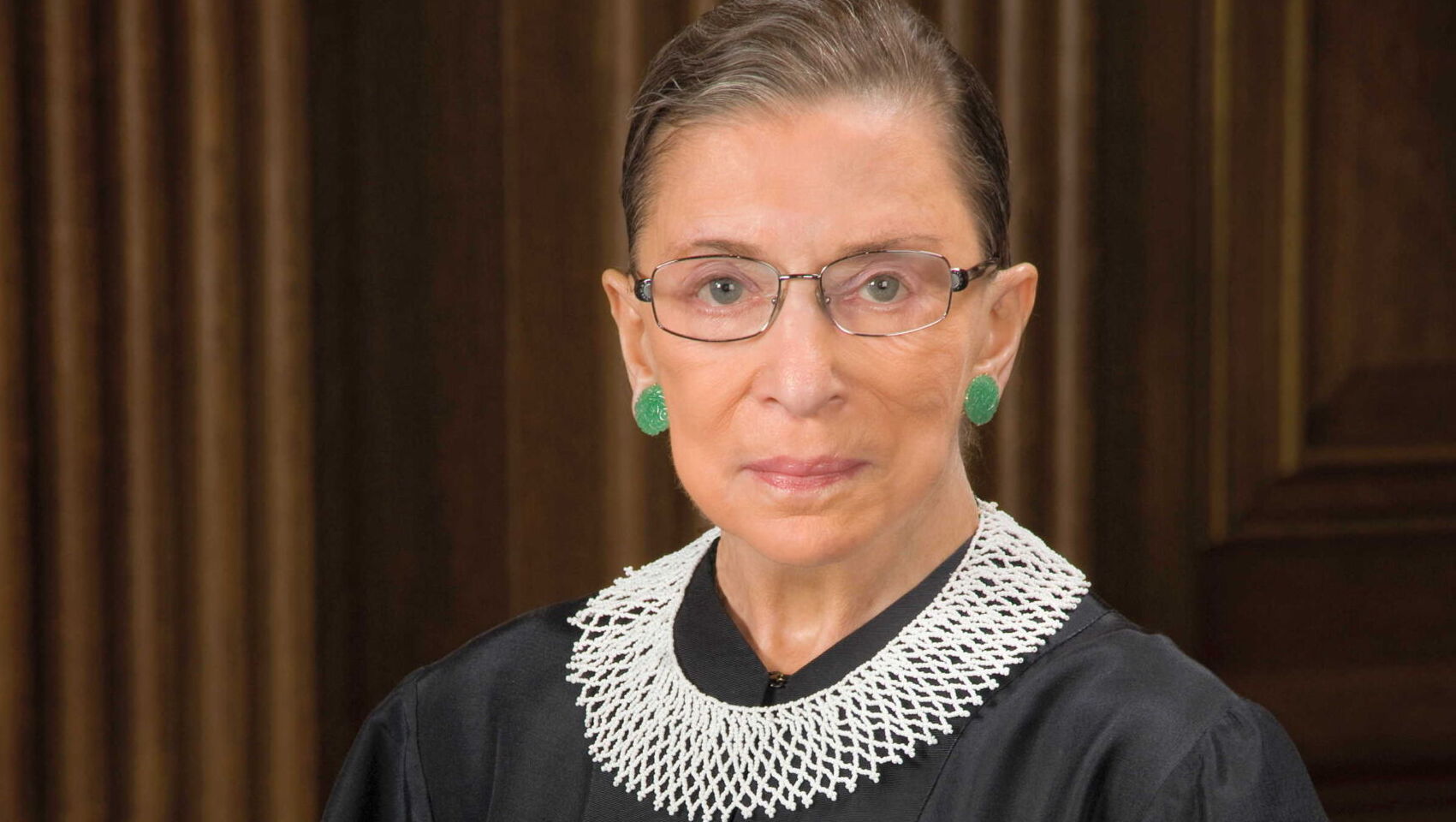
“Our nation has lost a justice of historic stature,” Chief Justice John Roberts said. “We at the Supreme Court have lost a cherished colleague. Today we mourn but with confidence that future generations will remember Ruth Bader Ginsburg as we knew her, a tireless and resolute champion of justice.”
Women like me and my daughters and granddaughter thank Justice Ruth Bader Ginsburg for fighting for women’s rights, so that we may be accorded by law the same rights given to men, in fulfillment of the promise of America that in this country, all people are created equal.
National Public Radio (NPR) reported:
She changed the way the world is for American women. For more than a decade, until her first judicial appointment in 1980, she led the fight in the courts for gender equality. When she began her legal crusade, women were treated, by law, differently from men. Hundreds of state and federal laws restricted what women could do, barring them from jobs, rights and even from jury service. By the time she donned judicial robes, however, Ginsburg had worked a revolution.
That was never more evident than in 1996 when, as a relatively new Supreme Court justice, Ginsburg wrote the court’s 7-1 opinion declaring that the Virginia Military Institute could no longer remain an all-male institution. True, Ginsburg said, most women — indeed most men — would not want to meet the rigorous demands of VMI. But the state, she said, could not exclude women who could meet those demands.
“Reliance on overbroad generalizations … estimates about the way most men or most women are, will not suffice to deny opportunity to women whose talent and capacity place them outside the average description,” Ginsburg wrote.
Justice Ginsburg understood our challenges, our pain, our dreams and our strengths and what we are capable of doing to be catalysts of change in this world because she herself experienced the same thing.
But these inequities and injustices against women did not stop her. She used these hurdles as her fire and impetus to do something about them with the gifts and opportunities that God gave her. She fought not only for herself but for all of us, and for the next generations of women in America.
“Born in Brooklyn, Ruth Bader went to public schools, where she excelled as a student — and as a baton twirler. By all accounts, it was her mother who was the driving force in her young life, but Celia Bader died of cancer the day before the future justice would graduate from high school.
Then 17, Ruth Bader went on to Cornell University on a full scholarship, where she met Martin (aka “Marty”) Ginsburg. “What made Marty so overwhelmingly attractive to me was that he cared that I had a brain,” she said.
After her graduation, they were married and went off to Fort Sill, Okla., for his military service. There Mrs. Ginsburg, despite scoring high on the civil service exam, could only get a job as a typist, and when she became pregnant, she lost even that job.
Two years later, the couple returned to the East Coast to attend Harvard Law School. She was one of only nine women in a class of more than 500 and found the dean asking her why she was taking up a place that “should go to a man.”
At Harvard, she was the academic star, not her husband. The couple was busy juggling schedules and their toddler when Marty Ginsburg was diagnosed with testicular cancer. Surgeries and aggressive radiation followed.
So that left Ruth with a 3-year-old child, a fairly sick husband, the law review, classes to attend and feeding me,” Marty Ginsburg said in a 1993 interview with NPR.
The experience also taught the future justice that sleep was a luxury. During the year of her husband’s illness, he was only able to eat late at night; after that he would dictate his senior class paper to her. At about 2 a.m., he would go back to sleep, Ruth Bader Ginsburg recalled in an NPR interview. “Then I’d take out the books and start reading what I needed to be prepared for classes the next day.”
Marty Ginsburg survived, graduated and got a job in New York; his wife, a year behind him in school, transferred to Columbia, where she graduated at the top of her law school class.
Despite her academic achievements, the doors to law firms were closed to women, and though recommended for a Supreme Court clerkship, she wasn’t even interviewed.
It was bad enough that she was a woman, she recalled later, but she was also a mother, and male judges worried she would be diverted by her “familial obligations.”
A mentor, law professor Gerald Gunther, finally got her a clerkship in New York by promising Judge Edmund Palmieri that if she couldn’t do the work, he would provide someone who could. That was “the carrot,” Ginsburg would say later. “The stick” was that Gunther, who regularly fed his best students to Palmieri, told the judge that if he didn’t take Ginsburg, Gunther would never send him a clerk again. The Ginsburg clerkship apparently was a success; Palmieri kept her not for the usual one year, but two, from 1959-61.
In 1963, Ginsburg finally landed a teaching job at Rutgers Law School, where she at one point hid her second pregnancy by wearing her mother-in-law’s clothes. The ruse worked; her contract was renewed before her baby was born.
While at Rutgers, she began her work fighting gender discrimination. She also became the first female tenured professor at Columbia Law School, and also found the Women’s Rights Project at the American Civil Liberties Union.
Ginsburg worked her way from clerkship all the way to become the second woman Associate Justice of the Supreme Court from 1993 until her death on September 18, 2020 at the age of 87.
Her husband Marty told NPR in an interview that from her first big case, Ginsburg “had to think through all the issues and how to fix the inequity. The solution was to ask the court not to invalidate the statute but to apply it equally to both sexes. She won in the lower courts.”
She persuaded the men in the court, consisted mostly of men, based on the legal theory: “The words of the 14th Amendment’s equal protection clause — ‘nor shall any state deny to any person the equal protection of the laws.’ Well that word, ‘any person,’ covers women as well as men.”
Paraphrasing her famous quote, this was how she fought for the things she cared about, by doing it in a way that would lead others to join her.
Justice Ruth Bader Ginsburg would have wanted to live up to her 90s, knowing how critical this time is in our nation’s history.
“That’s because Ginsburg’s death gives Republicans the chance to tighten their grip on the court with another appointment by President Trump so conservatives would have 6-3 majority. And that would mean that even a defection on the right would leave conservatives with enough votes to prevail in the Obamacare case and many others,” NPR reported.
Justice Ginsburg dictated her dying wish to her granddaughter, Clara Spera, in the final moments of her life: “My most fervent wish is that I will not be replaced until a new president is installed.”
Unfortunately, this dying wish would not be honored. On the day Justice Ginsburg’s death was announced, Senate Majority Leader Mitch McConnell said he would work to fill the vacant seat with less than 38 days before the election. Trump is set to formally announce his nominee, conservative Judge Amy Coney Barrett, over the weekend.
“President Trump’s Supreme Court nominee will receive a vote on the floor of the U.S. Senate,” McConnell asserted, as GOP aides are skeptical that there is enough time to confirm a nominee before November 3, given that Supreme Court nominees typically take two to three months to process, according to a review of recent confirmation proceedings,” CNN reported.
There is no urgency in passing a bill to help ordinary hardworking Americans suffering through the coronavirus pandemic for these Republicans and Trump, contradicting their own statements and principles used to rationalize.
We all remember how these Republicans blocked any confirmation hearings for President Barack Obama’s nominee Merrick Garland to succeed Justice Antonin Scalia, McConnell’s justification and pontification: the upcoming presidential election. To which he said, “would allow voters a chance to weigh in on what kind of justice they wanted. But now, with the tables turned, McConnell has made clear he will not follow the same course.”
Such a hypocritical move from Trump and the Republicans who now contend that there is no statute that prevents them from immediately pushing through and rushing confirmation hearings.
As it has been with Trump and his Republican cohorts, they think and move they are above the law in allowing Trump’s transgressions against the rule of law and the Constitution, and that they are definitely not covered by higher ethical and moral standards we expect from our elected officials.
This November is an opportunity to vote Trump and other Republican candidates out.
* * *
Gel Santos Relos has been in news, talk, public service and educational broadcasting since 1989 with ABS-CBN and is now serving the Filipino audience using different platforms, including digital broadcasting, and print, and is working on a new public service program for the community. You may contact her through email at gelrelos@icloud.com, or send her a message via Facebook at Facebook.com/Gel.Santos.Relos.




